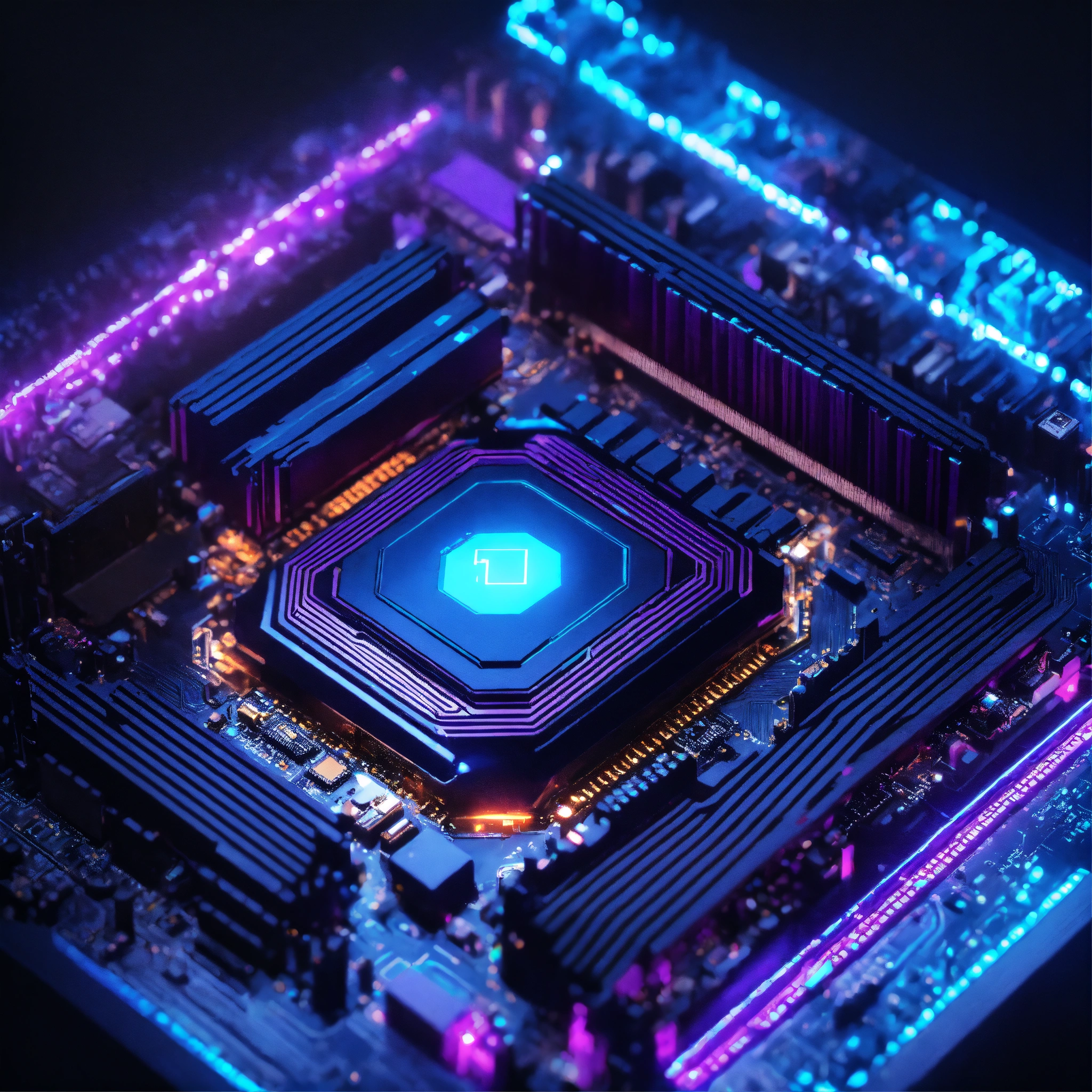RFID technology is revolutionizing how you manage and optimize your manufacturing processes. By integrating Machine-to-Machine (M2M) communication and Artificial Intelligence (AI), you can significantly enhance operational efficiency and reduce waste. These innovations enable you to collect real-time data, monitor equipment performance, and streamline supply chains, all while minimizing risks associated with human error. As you embrace these advancements, you’ll find that boosting productivity and improving accuracy can lead to faster decision-making and a more competitive edge in the market.
Understanding M2M Communication
The integration of Machine-to-Machine (M2M) communication is transforming the manufacturing landscape by enabling seamless connectivity between machines, devices, and systems. This communication allows for real-time data exchange, enhancing your operational efficiency and decision-making processes. With the blending of IoT, sensors, and cloud computing, M2M lays the foundation for a smarter, more responsive manufacturing environment, helping you stay competitive in today’s fast-paced market.
Definition and Key Technologies
By harnessing technologies such as sensors, wireless networks, and data analytics, M2M communication empowers devices to autonomously share information. This synergy enables predictive maintenance, quality control, and resource optimization, providing you with greater insight into your manufacturing operations while minimizing downtime and costs.
Applications in Manufacturing
On the factory floor, M2M communication facilitates the integration of various systems, allowing you to monitor equipment performance, track inventory, and ensure quality standards are met. This results in streamlined processes and heightened operational insight, ultimately boosting your productivity.
Definition: The applications of M2M communication in manufacturing are numerous and transformative. You can implement real-time monitoring of equipment to detect failures before they happen, drastically reducing downtime. Moreover, M2M enhances inventory management through improved tracking and automated ordering systems, ensuring you maintain optimal stock levels. This not only improves efficiency but also reduces waste, contributing to sustainability goals within your operations. By leveraging M2M, you harness the power of data analytics to identify patterns and enhance overall performance, making informed decisions that drive profitability and growth.
The Role of Artificial Intelligence in Manufacturing
Now, you can harness the potential of Artificial Intelligence (AI) to revolutionize your manufacturing processes. By integrating AI technologies, your operations can become more adaptive, streamlined, and efficient. With AI analyzing vast amounts of data in real-time, you can gain valuable insights that enhance decision-making, optimize resource allocation, and improve overall productivity.
Enhancing Production Efficiency
Artificial intelligence plays a pivotal role in your manufacturing by refining processes and reducing waste. Through the use of advanced algorithms, AI can optimize production scheduling and inventory management, ensuring that resources are utilized effectively. This leads to shorter production cycles and improved output quality, ultimately driving your operational success.
Predictive Maintenance and Quality Control
With AI’s capabilities, you can implement predictive maintenance strategies that minimize unplanned downtime. By analyzing historical data and real-time sensor inputs, AI identifies patterns that indicate potential equipment failures before they occur. This proactive approach not only helps in maintaining consistent production rates but also ensures high-quality output.
Control of your manufacturing processes enhances drastically when leveraging AI for predictive maintenance and quality control. By utilizing data-driven insights, you can identify anomalies and optimize equipment functionality. This foresight allows you to address issues swiftly, reducing expensive downtimes and maintaining high standards in product quality. Regularly monitoring your equipment and processes means you can not only prevent problems but also consistently produce top-notch products, giving you a competitive edge in the market.
Leveraging RFID Technology
Clearly, RFID technology is revolutionizing the manufacturing landscape by enhancing operational efficiency and data accuracy. By implementing RFID systems, you can track assets, monitor inventory levels, and optimize production workflows in real-time. This means fewer errors and increased visibility across the supply chain, ultimately leading to better decision-making and improved profit margins.
Inventory Management and Traceability
Management of inventory becomes effortlessly streamlined as RFID facilitates accurate tracking of every item in your warehouse. By using RFID tags, you can ensure that your products are stored and retrieved efficiently, which reduces excess stock and lowers carrying costs. Furthermore, the enhanced traceability provided by RFID allows you to monitor the movement of goods throughout the supply chain, ensuring compliance and accountability.
Streamlining Supply Chain Operations
Below, you will discover how RFID significantly enhances supply chain operations by improving accuracy and efficiency. The implementation of RFID technology allows you to automate processes like receiving, storing, and shipping products, thus eliminating manual errors and reducing lead times.
The integration of RFID technology in your supply chain operations can lead to higher accuracy levels in inventory tracking, ensuring that you have the right products available when needed. Additionally, it allows for real-time visibility into your supply chain, enabling you to quickly identify any disruptions or inefficiencies. This not only strengthens your decision-making capabilities but also results in timelier shipments, ultimately enhancing customer satisfaction. Furthermore, RFID can help you mitigate risks related to theft or loss of inventory, contributing to overall cost savings and improved operational performance.
Integration of M2M, AI, and RFID
Despite the remarkable advancements in M2M, AI, and RFID technologies, successfully integrating these systems requires a strategic approach. You must ensure seamless communication between devices and platforms while addressing data compatibility issues. By leveraging these technologies collectively, you can enhance operational efficiency, reduce downtime, and enable smarter decision-making in your manufacturing processes.
Creating a Smart Manufacturing Ecosystem
After implementing M2M, AI, and RFID, you can establish a smart manufacturing ecosystem that connects machines, people, and data. This environment fosters real-time monitoring and analytics, enabling you to predict equipment failures and optimize production schedules. As a result, you can enhance overall productivity and achieve a more agile manufacturing process.
Overcoming Challenges in Integration
Beside the benefits of integrating M2M, AI, and RFID, you might encounter challenges such as legacy system compatibility and data privacy concerns. These issues can hinder full-scale implementation and operational efficiency.
Plus, you must prioritize addressing system compatibility to ensure that your existing machinery can work with new technologies. This transition can be time-consuming and involve considerable investment. Additionally, navigate data privacy risks as greater connectivity raises the stakes for security breaches. By focusing on robust cybersecurity measures and phased integration approaches, you can mitigate risks and maximize the benefits of a connected manufacturing landscape.
Case Studies of Transformation in Manufacturing
For organizations leveraging M2M, AI, and RFID, real-world examples highlight remarkable transformations:
- Company A increased production efficiency by 30% through AI-driven predictive maintenance.
- Company B reduced inventory costs by 25% using RFID technology for real-time tracking.
- Company C saw a 40% decrease in downtime via M2M communication between machinery.
- Company D improved quality control processes, resulting in a 15% reduction in defects through AI analytics.
Success Stories of M2M, AI, and RFID Implementation
Behind the scenes of these successful transformations, organizations have effectively integrated M2M, AI, and RFID to revolutionize their manufacturing processes. By employing these technologies, businesses are not only enhancing efficiency but also paving the way for smarter operations and real-time decision-making.
Lessons Learned from Industry Leaders
Below the surface of these successes lies a wealth of insights. Adopting technological integration requires a strong focus on training, ongoing support, and adapting to changing environments for sustainable results.
Implementation of advanced technologies like M2M, AI, and RFID can be a transformative journey for your manufacturing process. However, you must approach it with clear strategies and an understanding that continuous education and adaptation are key. Businesses that invest in robust training programs often report significant improvements in employee confidence and efficiency, as well as decrease in resistance to technological changes, highlighting the importance of addressing the human element in technology adoption.
Future Trends in Manufacturing Technology
Keep an eye on the horizon, as emerging technologies are set to reshape the manufacturing landscape. Innovations in M2M, AI, and RFID will drive efficiencies, reduce costs, and enhance product quality, paving the way for smarter factories. With advancements in connectivity and automation, you’ll be able to optimize operations like never before, creating a more resilient manufacturing environment.
Anticipated Developments in M2M, AI, and RFID
Any organization looking to stay competitive should prepare for significant advancements in M2M, AI, and RFID technologies. These developments will enable real-time data exchange, predictive analytics, and enhanced supply chain visibility, ultimately resulting in more agile and responsive production processes.
The Impact of Industry
Around the globe, Industry is spearheading a paradigm shift in manufacturing. This new industrial revolution emphasizes connectivity and data-driven decision-making, integrating your production systems and enhancing overall efficiency. As you engage with smart technologies, expect to see faster production cycles and reduced waste.
In fact, Industry signifies a major transformation in your operational capabilities. By leveraging smart devices and data analytics, you can make informed decisions that improve productivity and lower costs. Furthermore, this movement will empower you to respond quickly to market demands, fostering innovation and maintaining a competitive edge. Embracing these changes will ultimately enhance your manufacturing processes, leading to sustained growth and success in a rapidly evolving industry.
Summing up
Considering all points, it’s clear that M2M, AI, and RFID are significantly transforming the manufacturing landscape. You can leverage these technologies to enhance operational efficiency, reduce costs, and improve product quality. By harnessing the power of real-time data and machine learning, your manufacturing processes can become more agile and responsive to market demands. Embracing these innovations not only positions you to stay competitive but also enables you to unlock new opportunities for growth and innovation in your business.




